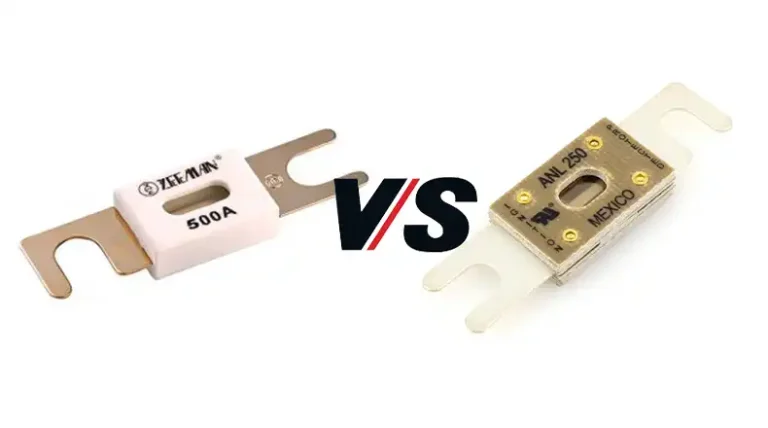Top 5 Best CRMs for Solar Companies
Customer relationship management (CRM) software has become an invaluable tool for solar companies to organize sales, marketing, and customer service operations. With the right CRM, solar companies can manage leads more efficiently, gain insights into customer interactions, and enhance team collaboration. This guide will compare the top CRMs for solar companies, provide tips for implementation, and cover the key features to look for.

Top 5 CRMs for Solar Companies
When evaluating CRMs for your solar company, compare capabilities, ease of use and pricing to find the best fit. Here is an overview of 5 top options:
Salesforce
The most popular CRM, Salesforce offers powerful features for sales and marketing. However, the interface can be complex for non-technical users. Pricing starts at $25/month for basic Sales Cloud.
Main features: Lead scoring, campaign management, customizable reports, workflow automation, and sales productivity tools.
Pros: Robust functionality, extensive customization, third-party integrations.
Cons: Steep learning curve, high cost with add-ons.
Zoho CRM
Zoho is an affordable and user-friendly CRM with all core features plus marketing automation. Integrates easily with Zoho’s suite of business apps. Plans start at $12/month per user.
Main features: Social media integration, email marketing, inventory management, contract templates.
Pros: Intuitive interface, comprehensive features, inexpensive.
Cons: Less flexibility for customization compared to Salesforce.
HubSpot
HubSpot focuses heavily on inbound marketing and sales automation. The platform is intuitive to use even for non-technical users. Pricing starts at $45/month for basic CRM features.
Main features: Website tracking, landing page builder, email sequencing, meeting scheduling, email integration.
Pros: Strong marketing automation capabilities, simple interface, great for small biz.
Cons: Limited after-hours support, fewer sales focused features.
Pipedrive
Pipedrive is designed especially for sales teams, with an intuitive pipeline-centric interface. Plans start at $15/month per user.
Main features: Lead nurturing, deal forecasting, simple reporting, email integration, calendar sync.
Pros: Very easy to use, affordable, great for small sales teams.
Cons: Less flexibility in workflows, and fewer marketing features.
SugarCRM
SugarCRM strikes a balance between usability and customization capabilities. It provides robust sales automation and reporting at a reasonable price. Plans start at $40/month.
Main features: Campaign management, advanced reporting, lead scoring, process automation, and territory management.
Pros: Scales well for growing companies, flexible platform.
Cons: Not as user friendly as Pipedrive or Zoho.
Why You Should Use a CRM for Your Solar Business
Implementing a robust CRM delivers many advantages that can significantly impact solar companies’ productivity and profitability. Some major benefits include:
Increased Efficiency and Productivity
A CRM centralizes all customer data and interactions in one place, eliminating the need to juggle between spreadsheets, emails, and other systems. This, along with features like sales pipeline management and task automation, enables solar teams to work more efficiently. Employees also gain more time for customer-facing interactions instead of administrative work.
Better Customer Management and Retention
With a unified customer profile and history, solar companies can provide more personalized and timely service. Customer satisfaction increases when inquiries are managed efficiently and seamlessly across departments. Automated workflows also ensure consistent follow-up. This results in improved customer retention over the long-term.
Enhanced Sales Pipeline Visibility
The sales pipeline view in a CRM gives managers clear insight into pending sales and forecasts. You can track opportunities from initial contact through to closed deal. Activity reminders also keep sales reps focused on pushing deals forward. This level of visibility allows solar companies to accurately predict revenue and growth.
Data-Driven Insights and Reporting
A CRM captures every customer interaction, enabling solar companies to identify trends and get actionable insights through reports and dashboards. You can analyze performance by rep, channel, campaign and other parameters. This data empowers informed decision-making.
Automated Workflows and Processes
CRMs streamline repetitive tasks like sending emails, scheduling calls, and assigning activities through automated workflows. Bulk actions can also be performed across contacts. This boosts team productivity and ensures consistent execution of processes.
Enhanced Team Collaboration
Features like shared calendars, threaded conversations on accounts, and activity feeds foster seamless collaboration between solar sales, customer service, project management and other teams. Smooth information sharing ultimately leads to better customer experiences.
What Features You Should Look for in a CRM?
While individual needs vary, most solar companies should look for these essential features in their CRM:
- Contact management – organized lead and customer database
- Sales pipeline – visual view of deal progression
- Workflow automation – streamlined repetitive tasks
- Reporting and dashboards – data insights for smarter decisions
- Email integration – manage emails without changing apps
- Opportunity tracking – monitor sales prospects from lead to close
- Mobile access – manage work on the go
- Marketing automation – targeted campaigns and lead nurturing
- Integrations – connect seamlessly with other software like accounting
- Customization – tailor fields, workflows and processes
Pro Tips for CRM Implementation and Usage
Implementing a new CRM brings immense possibilities but also requires careful planning and execution. To ensure your solar company gains maximum value, involve team members early so they feel invested in the tool. Take time to thoughtfully migrate existing data to maintain integrity.
You’ll also want to set appropriate permissions and access for each team. Thorough training is key, with users starting with simple workflows to build confidence. Configure the CRM to meet your needs by setting up groups, tags, and custom fields that allow proper data segmentation.
Final Words
Implementing an intelligent CRM will transform customer and data management for solar companies. However, it is important to choose the system that aligns best with your specific business needs and workflows. This guide outlines key considerations from core features to vendor comparison to tips on driving adoption. With the right CRM now an essential tool, take the time to evaluate thoroughly before selecting your platform. Leverage the many capabilities of modern CRMs to enhance productivity, insight, and customer experiences.







